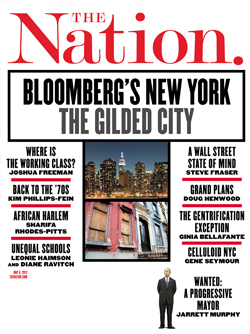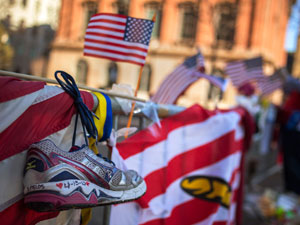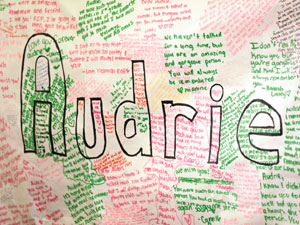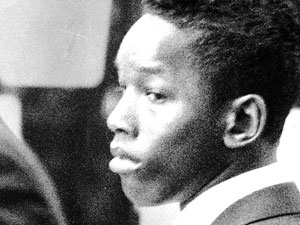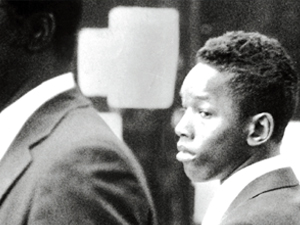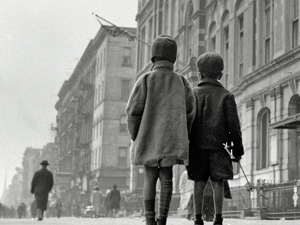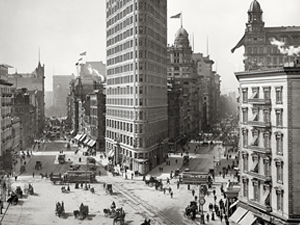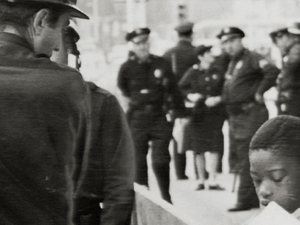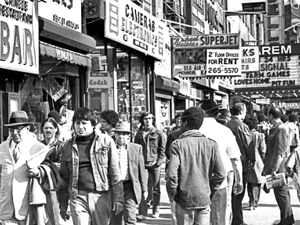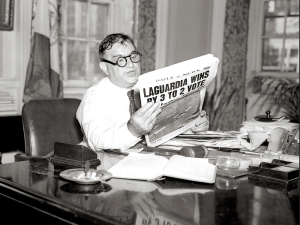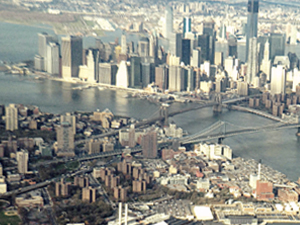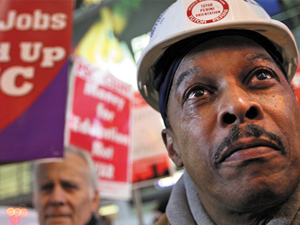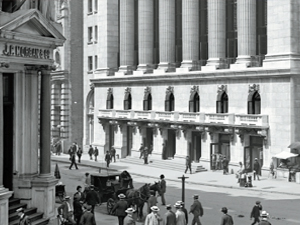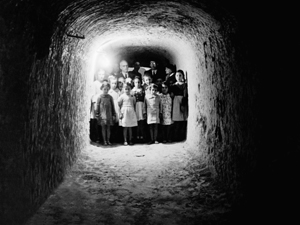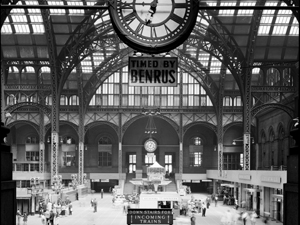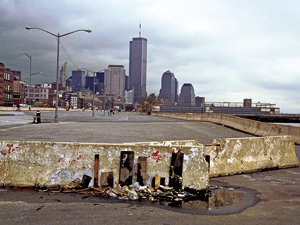Andrew Cuomo: Gov for All Seasons?
Ithaca, N.Y.
Eric Alterman describes Governor Andrew Cuomo’s response to global warming as progressive [“The Cuomo Conundrum,” April 8]. But Cuomo’s response to global warming is troubling. While he talks about it—which is a good thing—Cuomo is considering allowing the oil and gas industry to frack New York. Contrary to industry propaganda, fracking does not help reduce global warming. In fact, because fracking inevitably leaks methane—which exacerbates climate change much more than carbon dioxide—fracking is a major climate threat.
Fortunately, Governor Cuomo has better, safer energy options. A recent peer-reviewed study by Cornell and Stanford scientists shows that New York could shift to renewable energy by 2030. Under the plan, 40 percent of energy would come from offshore wind farms, 10 percent from onshore wind farms, 38 percent from solar sources and 5.5 percent from hydroelectric plants.
Not only is the plan good for public health and the environment; it is good for New York’s economy—creating 4.5 million construction jobs and 58,000 permanent jobs from the new energy facilities alone. The economic benefit of the plan is estimated at $314 billion during construction and $5.1 billion a year afterward. Governor Cuomo has the chance to be a true leader on climate change—if he stands up to the oil and gas industry and bans fracking in New York.
Robert W. Howarth
Washington, D.C.
Eric Alterman says that Governor Cuomo need not worry about wealthy people fleeing New York State if taxes get too high. Perhaps not, though hedge-fund billionaire and lifelong New Yorker John Paulson publicly flirted with a move to Puerto Rico. I suspect he won’t be the last, especially if New York’s taxes, combined with federal ones, push upper-income New Yorkers into marginal rates exceeding 50 percent. But the real problem is not seen in booming Manhattan or gentrifying Brooklyn, where high taxes are outweighed by the attractions of city life. New York’s economic woes are exemplified by small cities like Poughkeepsie, Schenectady and Utica, and larger ones like Syracuse and Buffalo, which fifty years ago were thriving manufacturing centers but now languish, losing industries and people. Economic revival can be aided in such cities by state policies, such as university-connected business “incubators.” But if there is to be a real economic revival, it must be generated by entrepreneurial energy, by young people willing to start businesses and families in upstate New York. Anyone contemplating staying in or moving to, say, Utica, to start a business knows that he or she will pay higher taxes and deal with a tougher regulatory climate than in, say, Texas. Andrew Cuomo is not wrong to worry about such matters. And liberals should, too.
Peter Connolly
Victor, N.Y.
“The complexity of the issue makes it easy for politicians to portray themselves as supporters of reform and then defang it behind closed doors,” says Eric Alterman about campaign finance reform in New York. And so it has been done. The NYS Fair Elections Bill being promoted by a broad coalition of good progressive organizations is doomed to fail, as it contains two fatal flaws.
First, Citizens United did not bend the campaign cost curve even a smidgen. The increase in total spending in 2012 was predictable by extrapolation. The big difference was in the movement of money from direct contributions to outside groups. This proliferation of Super PACs and related organizations is poised to make a mockery of even ideal public financing schemes. With public funding available to all, a “corporate candidate” can refuse large direct contributions and use taxpayer money for direct campaign expenses, safe in the knowledge that his corporate godfathers will decimate his opponent with “independently” placed ads. What self-respecting capitalist would leave this perfectly legal savings opportunity in the public treasury?
The avoidable flaw is of the back-room variety. Party leaders (viz., Sheldon Silver) have insisted that parties be allowed to help publicly funded candidates running on their tickets. Sounds like a reasonable point—until the limits are known. The way this bill is written, the parties reserve the right to contribute from $50,000 for assembly seats to an astonishing $2.5 million—each—for governor and lieutenant governor. This is money the parties get from the special interests the law aims to disempower! But its path to the publicly funded candidate is through the party bosses, exacerbating one of Albany’s biggest problems. This is a bill progressives should take the time to read and ponder before mindlessly supporting it.
Samuel A. Fedele
Breaking the Backbone of America
Onancock, Va.
William Greider’s “The New (Business) Left” [April 8] is a timely reminder that a great deal of what gets done in America happens outside Washington and New York. In the rural Virginia county where I live, much help for people in need is carried out by nonprofit groups and churches that stage fundraisers—from bake sales, to concerts, to golf tournaments, to spaghetti dinners. Often, small-business owners lead these events—like the chef who raises money for the food bank, or the financial planner who chairs the United Fund, or the factory owner who organizes a dinner for the Boys & Girls Club. And small-business people donate money, buy advertising in program booklets, provide materials at cost, and allow their business to be used for selling tickets or staging car washes. These people are fighting illiteracy, sheltering the homeless, protecting victims of domestic violence or paying electric bills for people in crisis.
As Greider makes clear, small-business people are pretty much ignored by Washington. Our political class, including the current occupant of the White House and his team of Wall Street–admiring advisers, promote international big business to the detriment of local small business. Tilting the playing field this way will destroy most local businesses and discourage young people from starting new ones. Washington, which fails to tax the rich adequately as it cuts programs for those in need, is taking a box cutter to the social fabric of rural America.
Haydon Rochester Jr.
Typo Patrol
A typo caused a “1” to go missing in Sarah Woolf’s “Noted” item [April 22], which stated that “only an estimated 1,500 of Warsaw’s Jews survived the Holocaust.” The estimate is actually 11,500. Read More
Our Readers
